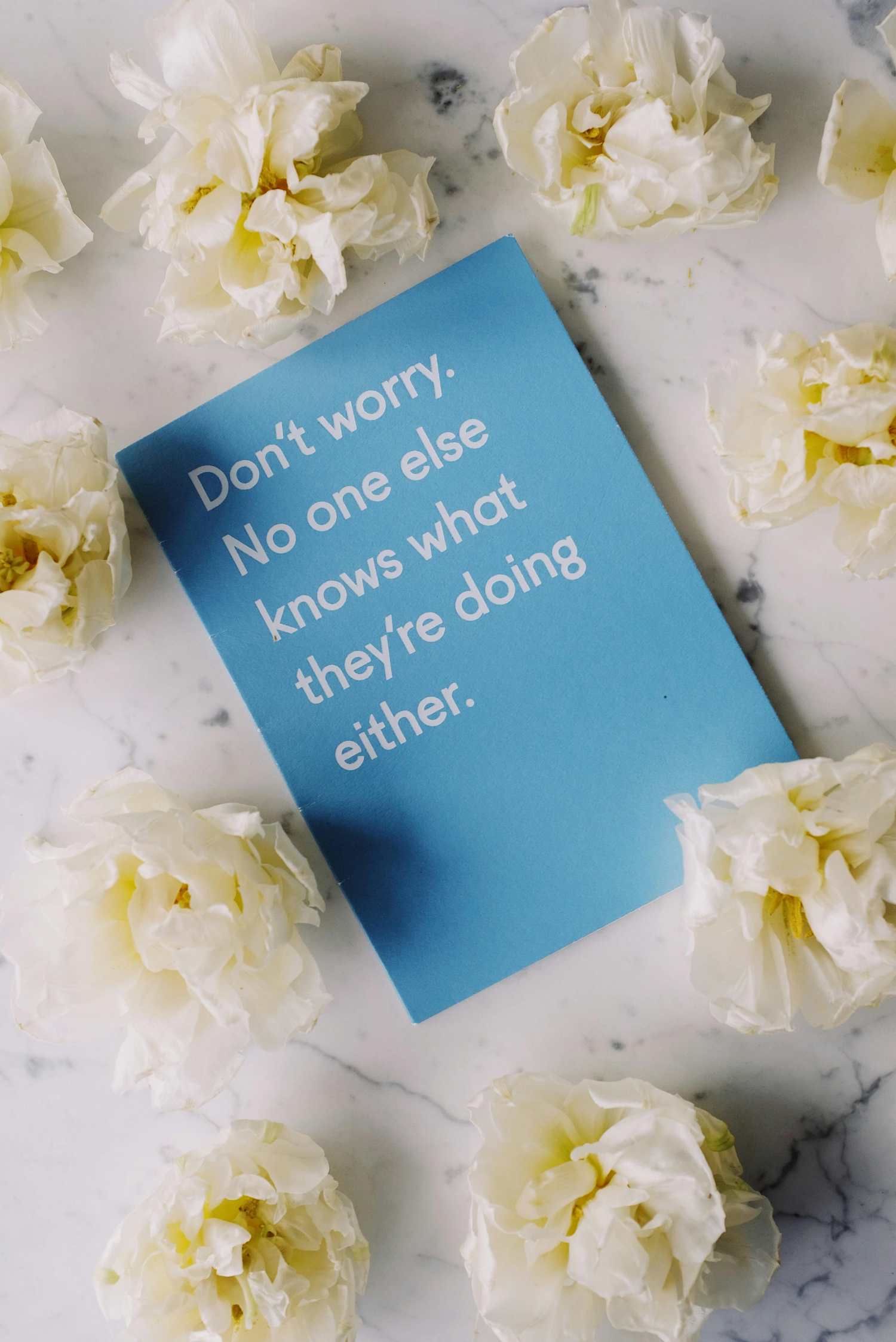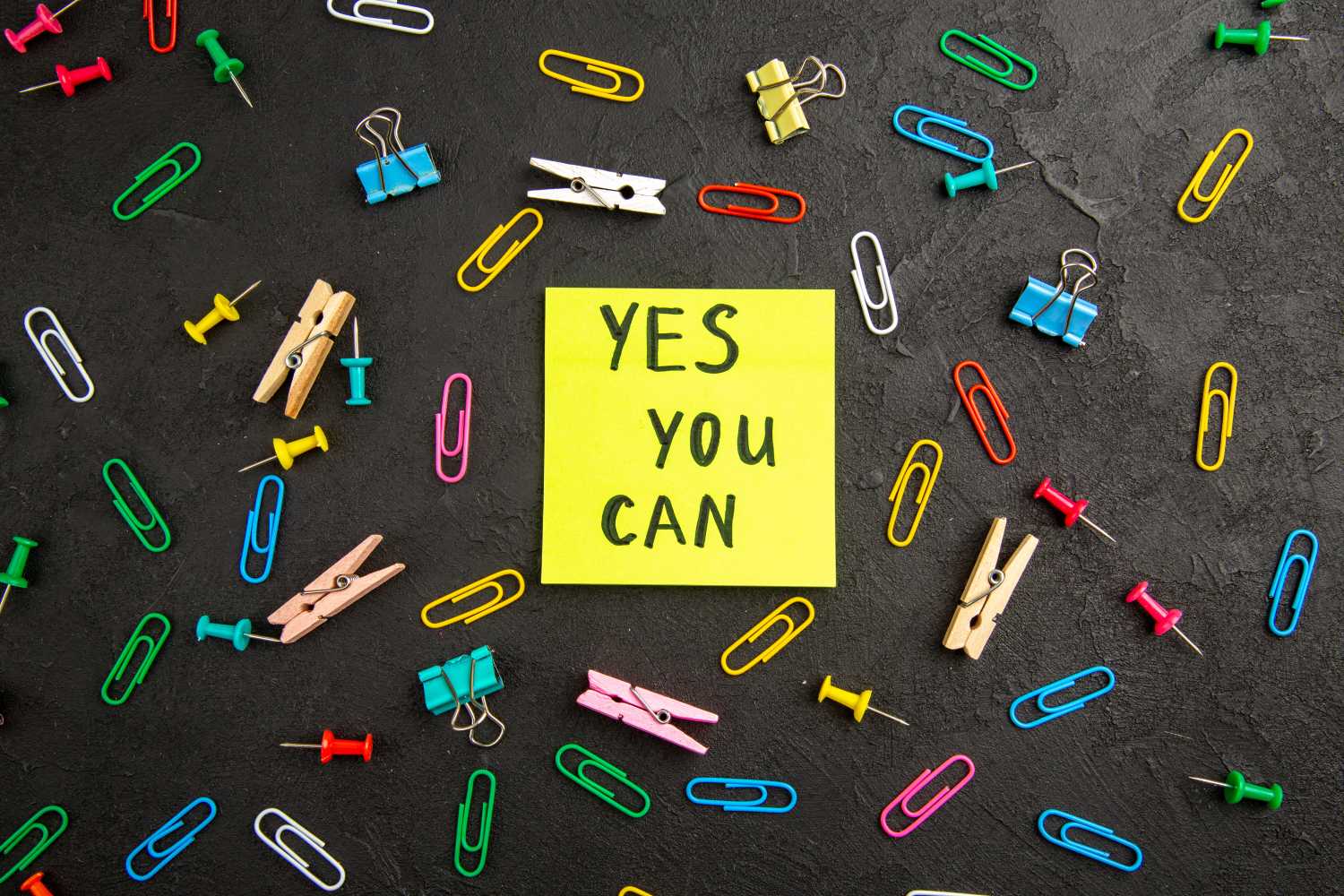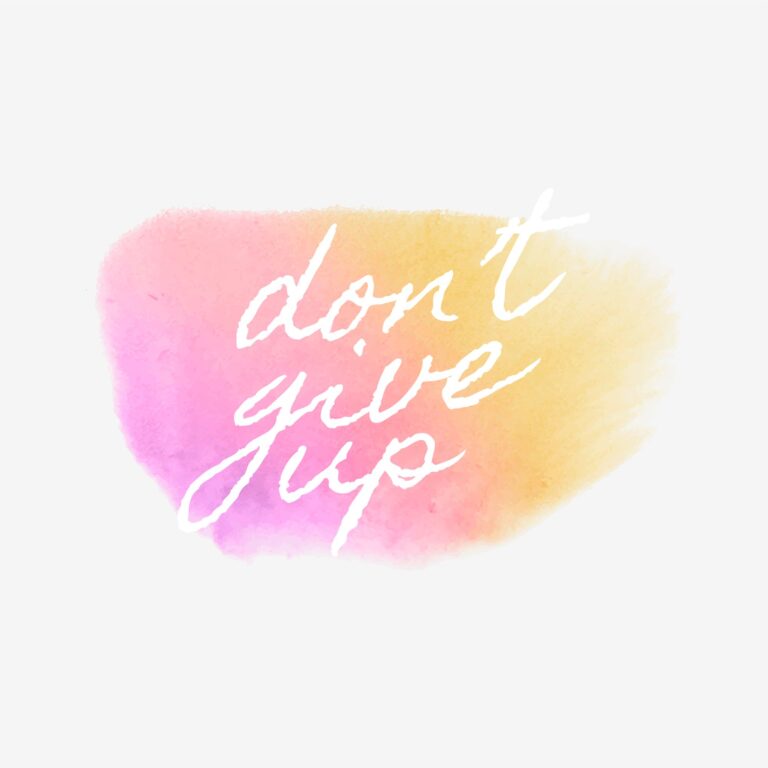Lost your motivation? How to feel motivated again and keep going
You’re three weeks into your goal and the initial excitement is completely gone. The thing that felt so inspiring when you started now feels like a chore. You’re looking for any excuse to quit, and your brain is helpfully supplying about seventeen good reasons why giving up makes perfect sense.
This moment – right here, when you want to quit – this is where actual change happens.
Not in the beginning when you’re pumped up and everything feels possible. Not at the end when you’ve already succeeded. Right here, in the messy middle, when motivation has abandoned you and you’re wondering why you ever thought this was a good idea.
Most people quit at this exact point. They think losing motivation means something’s wrong – with them, with the goal, with the process. They wait for motivation to come back, and when it doesn’t, they give up.
But motivation was never supposed to carry you all the way through. It was just the spark that got you started.
What carries you through is something completely different.
Related reads
- Best daily habits to build self-discipline: Simple steps to start today – you know motivation isn’t enough. Here’s how to build the daily systems that actually work.
- Overcoming self sabotage: Master your self development journey – wanting to quit when it gets hard is self-sabotage. Break the pattern for good.
- Self-discipline affirmations: 100 powerful statements to transform your willpower – change the voice in your head from “I don’t feel like it” to “I’m someone who follows through.”
- Mindset and self-discipline: How thoughts shape actions – understanding how your thoughts create (or destroy) your follow-through.
Why motivation always disappears (and why that’s normal)
Motivation is an emotion. And like all emotions, it’s temporary.
When you first start something new, your brain floods you with feel-good chemicals. Everything seems exciting and possible. You have energy for it. You think about it all the time. You tell everyone about your new goal.
Then reality sets in.
The work gets harder. The newness wears off. Progress slows down. Your brain stops rewarding you with those feel-good chemicals because the thing isn’t novel anymore.
And suddenly, you don’t feel like doing it.
This doesn’t mean you picked the wrong goal. It doesn’t mean you’re not cut out for it. It doesn’t mean anything except that you’re human and emotions don’t last forever.
The people who succeed aren’t more motivated than you. They’ve just figured out how to keep going when motivation disappears.

First figure out why you actually want to quit
Not all “I want to quit” moments are the same. Different reasons require different strategies.
Answer these questions honestly:
- Is this actually hard right now, or does it feel pointless?
Hard = You’re in the difficult middle, need better strategies
Pointless = You might have lost connection to your why
- Are you not seeing results, or are you not noticing the results that exist?
No results = Timeline expectations might be unrealistic
Not noticing = You need better tracking systems
- Is the goal wrong, or is the approach wrong?
Wrong goal = Your values have shifted, this doesn’t fit anymore
Wrong approach = The goal is right, the method needs adjustment
- Are you bored, overwhelmed, or scared?
Bored = Need more challenge or variety
Overwhelmed = Need to simplify or break it down
Scared = Getting close to something that matters, resistance is kicking in
- Has something changed in your life that makes this genuinely unsustainable right now?
Yes = Might need to pause and return later
No = You’re probably just hitting the predictable dip
Your answers determine which strategies will actually help you.
The real difference between quitting and adjusting
Sometimes, wanting to quit isn’t weakness. It’s wisdom.
You should actually quit if:
- Your values have genuinely changed and this no longer aligns
- You’re pursuing this for someone else’s approval, not your own fulfillment
- Continuing is causing genuine harm (physical, mental, financial)
- You’ve learned what you needed to learn and it’s time to move on
- This was an experiment and you got your data
You should keep going if:
- You’re just in the difficult middle phase
- You’re scared of success or visibility
- You started comparing yourself to others
- One setback made you question everything
- You’re tired but the goal still matters
The question isn’t “should I ever quit anything?” It’s “am I quitting because this is wrong, or because it’s hard?”
Be honest. Most of the time? It’s just hard.

What actually keeps you going when motivation is gone
Systems, not feelings.
When motivation dies, what takes over is your system – the structure you built that makes showing up easier than not showing up.
People who rely on motivation crash every single time. People who rely on systems keep moving forward even on days when they don’t feel like it.
Here’s what that actually looks like:
Motivation-based approach: “I’ll work out when I feel motivated.”
Result: You work out three times when you’re pumped, then never again.
System-based approach: “I work out Monday, Wednesday, Friday at 7 AM. It’s on my calendar. My gym clothes are laid out. I don’t debate it.”
Result: You show up even on days when you’d rather sleep in.
The system removes the need for motivation because the decision is already made. You’re not asking yourself “do I feel like it?” You’re just doing what you already decided to do.
15 strategies that actually work when you want to quit
Strategy 1: Make the next step embarrassingly small
When you feel like quitting, you’re overwhelmed by the enormity of what you’re trying to do. Your brain sees the whole mountain and says “absolutely not.”
So don’t look at the whole mountain. Look at the next tiny step.
Not “I have to work out for an hour” – just “I’ll put on my workout clothes.”
Not “I have to write the whole chapter” – just “I’ll write one paragraph.”
Not “I have to stick with this forever” – just “I’ll do it today.”
Make the next step so small that your brain can’t argue with it. Then do just that one thing.
What usually happens? Once you start, momentum takes over. But even if it doesn’t – even if you only do that one small thing – you’ve kept your commitment alive.
Strategy 2: Connect to why it mattered in the first place
You started this for a reason. When motivation disappears, that reason gets buried under frustration and fatigue.
Dig it back up.
Why did this matter to you? What were you hoping to gain? What were you trying to change?
Not the surface reason – the real one.
“I want to get in shape” isn’t deep enough.
“I want to feel strong and capable in my own body” – that’s real.
“I want to build my business” isn’t deep enough.
“I want to stop living my life according to someone else’s schedule” – that’s real.
Write it down. Say it out loud. Put it somewhere you’ll see every day.
When you reconnect with the deeper why, the temporary discomfort of showing up today becomes worth it again.
Strategy 3: Stop negotiating with yourself every single day
Every time you wake up and ask yourself “should I do this today?” you’re opening the door for your brain to talk you out of it.
And your brain is VERY good at talking you out of things. The solution? Remove the negotiation.
You decided once, at the beginning, that you were going to do this. That decision still stands. There’s nothing to debate.
This is what you do on Mondays. This is what you do at 7 AM. This is what you do when you sit down at your desk. The decision was already made.
You’re not re-deciding every day. You’re just following through on the decision you already made.

Strategy 4: Track something – anything
Your brain needs evidence that your effort is creating results. When you can’t see progress, your motivation to continue evaporates.
So make progress visible.
Mark an X on a calendar every day you show up. Track your workouts. Count your wins. Document the small improvements.
Not to create pressure. To create proof.
Proof that you’re not spinning your wheels. Proof that consistency is working. Proof that you’re becoming someone who keeps their commitments.
When you feel like giving up, look at your calendar covered in Xs. Look at your list of small wins. Look at the evidence that you’re already further than you were when you started.
That’s often enough to keep you going one more day.
Strategy 5: Find one thing that’s working and do more of that
When you’re thinking about quitting, you’re focused on everything that’s not working. The progress that’s too slow. The parts that are hard. The ways you’re falling short.
Flip that.
What IS working? What part of this do you actually enjoy? What’s easier now than it was at the beginning?
Find that one thing and lean into it.
If you hate running but love the way you feel after, focus on the after-feeling.
If you’re struggling with your business but love talking to clients, do more client work.
If writing feels like pulling teeth but editing feels satisfying, write messy first drafts and spend more time editing.
You don’t have to love every part of the process. You just need one part that doesn’t suck. Make that part bigger.
Strategy 6: Change one variable
Sometimes you don’t need to quit. You just need to adjust.
If you’re bored: Add challenge, variety, or a new element.
If you’re overwhelmed: Simplify, reduce scope, or slow down.
If you’re not seeing results: Check your method, not your commitment.
If it feels like drudgery: Add something that makes it enjoyable.
You can change the time, the approach, the environment, the pace, or the support you have.
The goal doesn’t have to change. Just the how.
Strategy 7: Get a win – any win
Momentum feeds on itself. When you’re stuck in “I can’t do anything right” mode, you need evidence that contradicts that story.
So manufacture a win.
Do the easiest version of the thing. Complete something small. Cross something off your list. Take the action you’ve been avoiding.
It doesn’t have to be impressive. It just has to be done.
One win reminds your brain that you’re capable. And one win makes the next one feel more possible.

Strategy 8: Talk to your future self
Your future self – the one who’s six months ahead – is watching you right now.
What would they want you to do? Would they regret that you gave up? Or would they be grateful you had the sense to stop?
Would they wish you’d pushed through one more week? Or would they understand why you needed to pause?
Future you has perspective that current you doesn’t have. Borrow that perspective before you make the decision.
Write yourself a letter from the future. What does that version of you know that you can’t see yet?
Strategy 9: Lower the bar temporarily
You don’t have to maintain your original standard forever. Sometimes you just need to survive today.
If you can’t do the full workout, do ten minutes.
If you can’t write the whole chapter, write one paragraph.
If you can’t do it perfectly, do it badly.
The point isn’t to maintain peak performance. The point is to not break the chain.
Do the minimum viable version. Keep your commitment alive. You can always return to the higher standard later.
But if you quit completely, there’s nothing to return to.
Strategy 10: Find someone who’s been where you are
You’re not the first person to want to quit this exact thing at this exact phase. Find someone who’s gone through the dip you’re in right now and came out the other side.
Read their story. Ask them how they pushed through. Let them remind you that this is temporary and normal.
Knowing that other people felt exactly how you feel and still succeeded changes everything.
You’re not uniquely incapable. You’re just in the part where everyone struggles.
Strategy 11: Make it social
Accountability changes behavior. Tell someone what you’re committing to. Work out with a friend. Join a group. Post your progress.
When someone else knows you’re supposed to show up, showing up gets easier.
Not because you care what they think (though that helps). Because making a commitment to another person activates different wiring in your brain than making a commitment to yourself.

Strategy 12: Remember what it cost you to get here
Think about everything you’ve already invested. Not to guilt yourself into continuing. To remind yourself that quitting now means all that effort was for nothing.
You’ve already done the hard part of starting. You’ve already pushed through the first few weeks when everything was new and awkward.
Quitting now means starting over from zero if you ever want to try again.
Is that really what you want?
Strategy 13: Give yourself a deadline for the decision
Don’t make the decision to quit in the middle of a hard moment.
Tell yourself: “I’ll revisit this decision in two weeks. Until then, I’m committed.”
Then stop debating. Stop questioning. Just show up for two more weeks.
At the end of two weeks, if you still want to quit, you can. But most of the time, the crisis will have passed and you’ll have momentum again.
Don’t let temporary feelings make permanent decisions.
Strategy 14: Celebrate what you’ve already done
You’ve been so focused on how far you still have to go that you forgot to acknowledge how far you’ve come.
Stop for a second. Really stop.
What have you already accomplished? What can you do now that you couldn’t do when you started? What obstacles have you already overcome?
Write it down. All of it. Every small win. Every moment you showed up when you didn’t want to.
You’re not starting from zero. You’ve already built something.
Don’t throw that away because today is hard.
Strategy 15: Ask yourself what you’d regret more
Fast forward six months.
In that future, you either pushed through and kept going, or you quit.
Which version of that future would you regret more? Would you regret giving up? Or would you regret staying when you knew it was wrong?
The answer to that question tells you what to do.

When you’re dealing with specific quitting triggers
If you’re quitting because you’re not seeing results:
Your timeline is probably unrealistic. Real change is slower than you think. Track smaller metrics. Look for evidence of progress you’re ignoring. Adjust your expectations without lowering your commitment.
If you’re quitting because you’re bored:
You’ve outgrown your current level. Add challenge. Increase the difficulty. Find a new angle. Boredom means you’re ready for the next level, not that you should stop.
If you’re quitting because you’re overwhelmed:
You’re trying to do too much. Simplify ruthlessly. Focus on one thing. Do less, but do it consistently. Overwhelm isn’t fixed by quitting – it’s fixed by simplifying.
If you’re quitting because someone criticized you:
One person’s opinion isn’t the truth. Separate useful feedback from noise. Decide if you’re going to let one comment derail months of work. Most of the time, criticism is just confirmation that you’re actually doing something that matters.
If you’re quitting because you failed once:
One setback doesn’t erase all your progress. Failure is information, not identity. What did you learn? What would you adjust? How can you try again differently?
If you’re quitting because you saw someone else succeeding:
Their success isn’t your failure. You’re seeing their highlight reel, not their struggle. Stop looking at their timeline and focus on yours. Comparison is poison when you’re already struggling.
If you’re quitting because you’re scared of succeeding:
This is the real one, isn’t it? You’re not afraid of failing. You’re afraid of what happens if this works. Afraid of the responsibility. Afraid of having to maintain it. Afraid of who you’ll become if you’re not the “struggling” version of yourself anymore.
That fear is information. It means you’re close. Don’t quit right before the breakthrough.
The truth about people who “never give up”
You look at successful people and think they must have some superhuman ability to stay motivated. They don’t.
They have hard days too. Days when they don’t want to show up. Days when they question everything. Days when quitting sounds really, really good.
The difference is what they do on those days.
They show up anyway. Not because they feel like it. Because they committed to it.
They’ve built systems that carry them through the low moments. They’ve removed the daily negotiation. They’ve made showing up easier than not showing up.
And they’ve accepted that motivation comes and goes, but commitment can stay constant.
You can do this too. You don’t need different genetics or more willpower. You need better systems and clearer commitment.

Your new relationship with motivation
Stop treating motivation like it’s required. It’s nice when it shows up, but it’s not necessary.
What’s necessary is this:
- A clear decision about what you’re committed to
- A system that makes following through easier
- The willingness to do it even when you don’t feel like it
- Proof that you’re making progress, even if it’s slow
- Compassion for yourself when it’s hard
- The ability to distinguish between “this is wrong” and “this is hard”
Motivation is a bonus. Commitment is the foundation.
The moment you stop waiting to feel motivated and start acting on your commitment regardless of how you feel – that’s when everything changes.
What to do right now
You’re reading this because you’re in that moment. The one where you want to quit. So here’s what you do:
Step 1: Answer the diagnostic questions at the beginning of this article. Figure out WHY you want to quit.
Step 2: Based on your answer, pick ONE strategy from this article that addresses your specific situation.
Step 3: Do the smallest possible version of the thing you’re supposed to do. Not the whole thing. Just the first step.
Step 4: Tomorrow, do it again.
You don’t have to feel motivated. You don’t have to be sure this will work. You just have to keep your commitment alive one more day.
That’s how people who “never give up” actually do it. One unremarkable day at a time, showing up even when it’s not exciting.
You can do that. Today, you can do that. And that’s all you need to worry about.
Ready to build the systems and commitment that carry you through when motivation disappears?
Our Self-discipline workbook gives you 30 days of structured practices to create habits that work even on your worst days. No willpower required – just a system that actually works.







